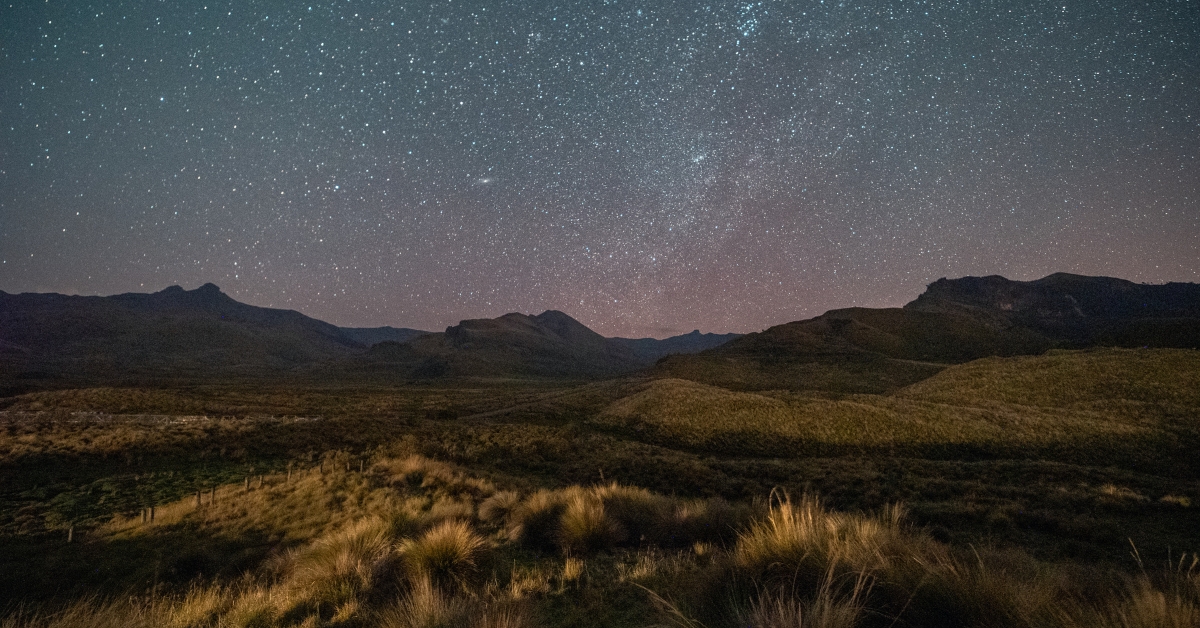At a time when the extinction and climate crises are jointly posing a greater threat to life on Earth than ever before, it's clear that we need to be doing even more to safeguard the ecosystems and species that keep our planet functioning. Some legal experts argue that one way to ramp up the protection of irreplaceable natural treasures is by granting these living entities the right to exist, thrive and evolve by affording them legal protection of these rights in court.
From rivers in Colombia and New Zealand to sharks in Panama, communities and countries across the globe have been invoking "rights of nature" laws to win court battles and therefore prevent development that threatens irreparable harm to unique ecosystems and species found nowhere else. While the concept may sound abstract to many Westerners, recent conservation wins in these places are proving that reframing how humans relate to nature could be critical to prevent the world's most irreplaceable ecosystems and iconic species from disappearing forever.
Centering Nature Instead of Humans
The concept of "ecocentrism"— a philosophy that views nature, not humanity, as the center of all things — has roots in traditional worldviews across the globe.
For millennia, Indigenous Peoples have maintained close ties to the lands, waters, plants and animals that comprise their native homelands. From using selective fishing tools to maintain healthy salmon populations in the Pacific Northwest to protecting sacred forest groves in India, Indigenous communities have long recognized that humans exist as just one small part of the natural world. In contrast, the Western, capitalist worldview tends to view the rest of life on Earth as existing to serve humanity and available for unlimited, exponential growth — a scientifically inaccurate view, given the finite quality and slow regrowth of many so-called "natural resources." Even that term implies that nature exists primarily to be used by humans.
An ecocentric view doesn't just acknowledge that our survival is dependent on keeping the rest of Earth healthy, it also reveals a different outlook, in which humans don't have the right to wantonly destroy other forms of life on Earth for personal gain.
"We've known all along that that we are a part of the community of life, and our decision should take into consideration that full community," says Mark Burget, Re:wild's vice president for strategic initiatives who is also a member of a rights of nature working group. "That's what the rights of nature is really all about."
So how does it work in practice? While the details of the rights of nature and how to protect it vary by government, in essence the natural entity is defended in a similar way to how children are represented in court cases.
"If I go to court right now because my child's rights have been violated, I go to court on behalf of my child's interests … but I speak for him," says Natalia Greene, the global director of the Global Alliance for the Rights of Nature.
There are other examples of collective entities being given the legal rights of an individual person: for example, corporations have also been given personal legal rights in many countries. By giving natural entities the same treatment, courts can help level the playing field; rather than assuming that a corporation has the right to pollute nature (with the only question being how much), this legal protection can help prevent destruction before it starts.
In court, the lawyers representing nature bring in scientists and other experts to shed light on how a particular development project will impact nature. Court cases that invoke the rights of nature frequently overlap with human rights issues, particularly the right of Indigenous communities to give (or withhold) free, prior and informed consent over decisions that will impact their territories and the benefits they derive from them. Greene says this overlap "allows us to prove that the rights of nature are being affected the same way that Indigenous rights are being affected, therefore the case becomes stronger."
Ecuador Leads the Way for Nature's Rights
From whales in New Zealand to waves in Brazil to a coastal saltwater lagoon in Spain, over 70 natural entities in 47 countries have been able to stave off harmful developments thanks to rights of nature laws. However, only one country, Ecuador, has enshrined the concept in its constitution.
"A lot of people worldwide look to Ecuador as setting the standard for recognizing the rights of their species and systems to exist and to thrive alongside humanity," Burget says.
Since incorporating the rights of nature within its constitution in 2008, several landmark cases have helped set a precedent for upholding those rights in court. For example, a 2020 case considered whether mining should be permitted in the Los Cedros Biological Reserve, a sanctuary for many species including Critically Endangered monkeys, rare orchids and 400 species of birds. The case ultimately recognized the rights of the ecosystem, and the mining concessions covering two-thirds of the reserve were canceled.
Deforestation, water pollution and soil degradation from a proposed mining project also threatened to destroy habitat in Ecuador's Intag Valley, including for the Critically Endangered Longnose Harlequin Toad. In 2023, a provincial court recognized the rights of the species and its ecosystem, preventing mining operations. This win was especially significant as local communities had spent almost three decades fighting government and corporate mining interests determined to profit off their lands; the "rights of nature" law gave them a new way to fight this exploitation in the courts.
In the Ecuadorian Amazon, Yasuní National Park has long been under threat of oil extraction, a short-sighted development that would have devastating consequences for one of the most species-rich places on Earth — as well as the Indigenous communities that depend on it. In 2023, nearly 60% of Ecuadorians voted against oil drilling in the park.
Greene sees this result as proof that this nature-centered outlook is starting to take hold among the Ecuadorian public. "That's a pretty interesting shift in consciousness and mindset and imagination of the people in Ecuador — that are not questioning, should nature have rights, but are questioning why the government doesn't implement them fully."
The Arc of Progress
It has taken centuries for the concept of all humans having inherent equal rights to be universally acknowledged by global bodies such as the United Nations, and marginalized groups such as Indigenous Peoples still have to fight for their rights to be respected.
Similarly, in recent decades, legal systems around the world have made dramatic progress on laws that protect animal welfare. "It wasn't very long ago that animals didn't have rights," Burget says. "Now if you cause animals pain, you can face jail time."
Asserting legal personhood to plants, animals, lakes, mountains, rivers and other natural entities is a logical next step in a long history of asserting the rights of living beings on Earth. While progress toward this goal may be slow and uneven, more countries and communities should look to this legal option as a real opportunity to stand up for nature and prevent its destruction.

